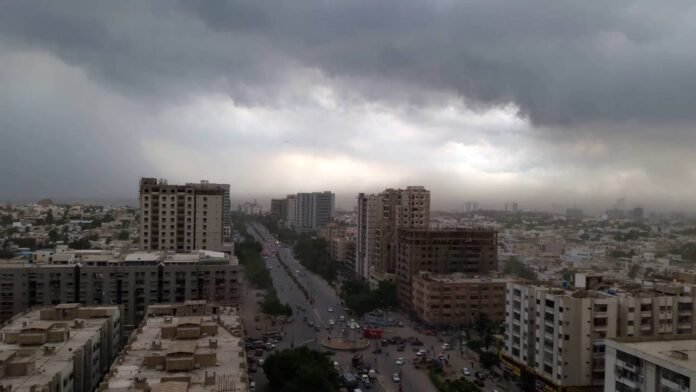Sea breezes returned to Karachi Weather, bringing respite for the residents. Who had been suffocating in the sweltering heat after sea winds stopped blowing for days, changing the weather? According to a meteorological department report, this July night marked the hottest recorded in the city’s history in six decades.
Dawn reported that they recorded the minimum temperature at 32 degrees Celsius on the night of July 1, with humidity levels at 70%.
In explaining the current situation, Chief Meteorologist Dr Sardar Sarfaraz said low air pressure over Gujarat (India) affects Karachi weather. He added that Sunday-Monday night was the hottest since 1960, when “the Met department digitized record.”
He stated that the previous hottest July night. Recorded as 31 degrees Celsius three or four years ago, has been referred to by him. He said temperatures will remain hot and humid but subside within the next few days. Sea breezes have already started penetrating city areas, though there will be no rain spell until July 8.
Yesterday, the Met Office recorded. A maximum temperature of 38.1 degrees Celsius. Higher by 4.5 degrees than the monthly average temperature for July. Which is 33.6 degrees Celsius.
Experts say the heatwave from June 23 to June 30 this year became the ever period of scorching heat in Karachi after the disastrous heatwave of June-May-2015 that claimed the lives of more than twelve hundred people and affected hundreds of thousands of others who fell ill due to severe dehydration and other related diseases caused by constant power cuts coupled with water shortage crisis across the mega city during the peak summer season.
On Monday, Jinnah Postgraduate Medical Centre (JPMC), Dr. Ruth Pfau Civil Hospital Karachi, Indus Hospital, and Abbasi Shaheed Hospital (ASH) did not report any deaths from heat stroke, marking the first time in eight days amid the severe heatwave.
These hospitals also saw fewer heat stroke patients in their emergency wards.
Last week, rescue services and other welfare organizations brought over 60 patients, either alive or deceased, to emergency wards due to heat stroke, indicating a significant increase in morgue admissions.


